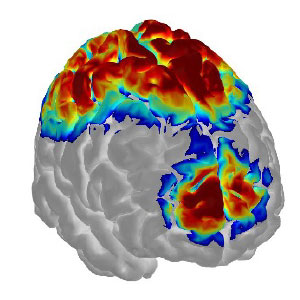Neurotechnologies to Help the Body Move, Heal and Feel Again

Background: The goal of the proposed project is to identify the origins of memory deficits in middle-aged, underrepresented women with Type 2 Diabetes (DM). Underrepresented women experience the most severe long-term consequences of DM, including development of dementia; however, we have limited insight into the complex causes of poor brain health in this population. In this project, complementary data from a variety of sources are collected to improve understanding in how memory deficits manifest early in this population.
Research Plan: We will pair trainees with graduate student mentors to investigate how the changes in cortical function correlate with cognitive and sensorimotor functions in adults with T2D. Functional near-infrared spectroscopy (fNIRS) will be used to measure cortical function differences between persons with T2D and healthy age- and sex-matched controls. NSAP trainees will be involved in data analysis and dissemination of research findings.
Prerequisites: Introductory course work in: Anatomy & Physiology, Psychology, and Computer Programming. Coursework in foundations of functional neuroimaging and experience in programming with MATLAB would be ideal, but not required.